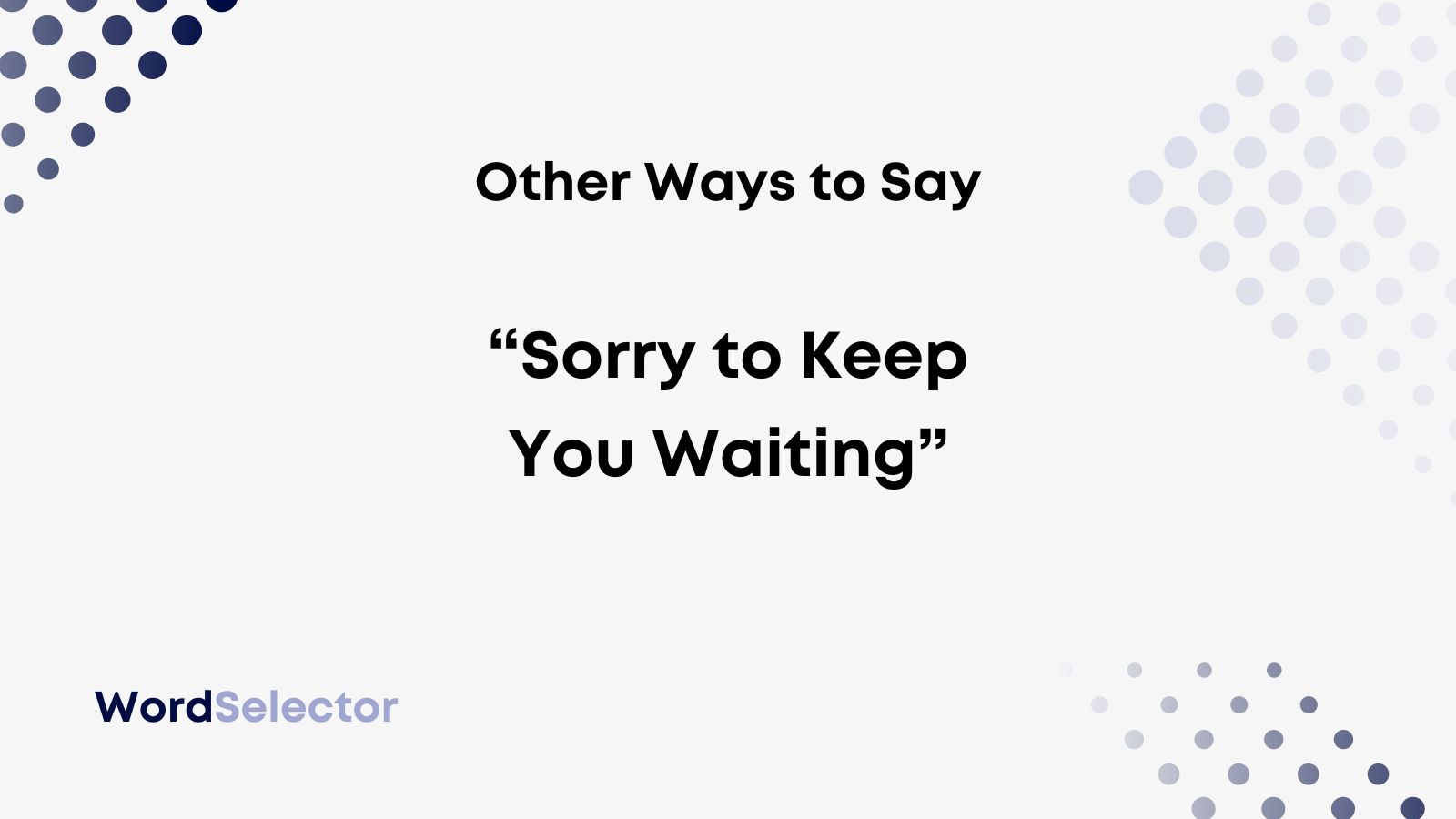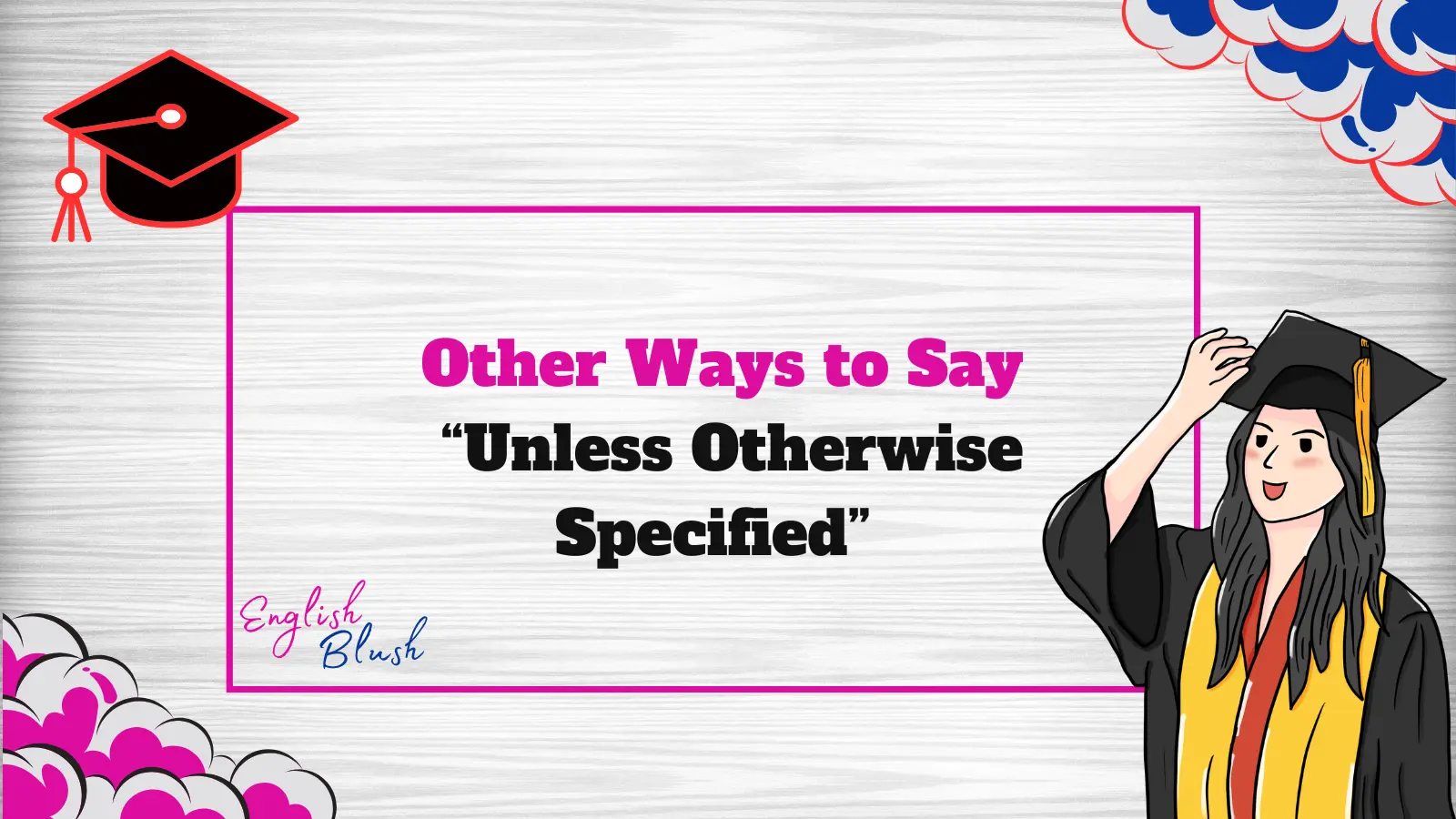Sorry To Keep You Waiting Synonyms

In an era defined by instant gratification, the phrase "Sorry to keep you waiting" has become a ubiquitous, yet often inadequate, apology for delays that can range from mildly inconvenient to deeply disruptive. But in professional contexts, relying on the same stock phrases can diminish their sincerity and impact.
This article delves into the world of alternative phrases that convey genuine remorse and professionalism when acknowledging delays. We'll explore the nuances of language, examining how different expressions can better suit specific situations and audiences. The goal is to equip readers with a toolkit of phrases to enhance their communication and mend any damage caused by tardiness.
The Problem with "Sorry to Keep You Waiting"
While seemingly harmless, overuse can render "Sorry to keep you waiting" impersonal and even dismissive.
It lacks specificity and doesn't address the reason for the delay or the impact it had on the other party. This can be particularly detrimental in client-facing roles or situations demanding high levels of empathy.
Alternatives Focusing on Remorse and Understanding
One powerful alternative is to express genuine regret and acknowledge the inconvenience caused. Phrases like, "I sincerely apologize for the delay and any inconvenience it may have caused," demonstrate empathy.
Another approach is to explicitly acknowledge their time. Consider, "Thank you for your patience, I know your time is valuable," which shows respect for their commitment.
Adding a specific detail about the delay can also help. Example, "I am so sorry for the unexpected delay. The system was undergoing a maintenance upgrade."
Alternatives Focusing on Explanation and Prevention
Providing a brief, clear explanation for the delay can help alleviate frustration. For instance, "Apologies for the wait, we encountered an unforeseen technical issue," offers transparency.
Assuring the other party that steps are being taken to prevent future delays is also crucial. Use, "We're working diligently to resolve the issue and prevent it from happening again," showcases proactive problem-solving.
Offering a concrete solution alongside the apology strengthens the message. For example, "I'm so sorry you had to wait. To compensate for the delay, let me offer you..."
Alternatives Focusing on Gratitude and Appreciation
Expressing gratitude for the person's patience goes a long way in mitigating negative feelings. Consider, "Thank you so much for your understanding while we worked through this issue," acknowledging their cooperation.
Highlighting the positive outcome that resulted from the wait can also reframe the situation. For instance, "Thank you for your patience, which allowed us to fully address the problem and provide a comprehensive solution."
Use the expression "We appreciate your patience", particularly when coupled with the reason for delay.
Context Matters: Choosing the Right Phrase
The best alternative depends heavily on the specific context. A formal setting may require more polished language like, "Please accept my sincerest apologies for the unanticipated delay."
In a more informal setting, a simple and direct approach might suffice. Something like, "Sorry about the wait!" can be sufficient, especially if followed by an immediate explanation.
Consider the relationship with the person you're apologizing to. A long-standing client will need more attention and detail than a new customer.
The Impact of Sincere Apologies
Beyond the words used, sincerity is paramount. People can often detect insincerity, which can exacerbate the situation.
Eye contact (if in person), tone of voice, and body language should all convey genuine remorse. Focus on active listening skills.
Following up on the apology with actions that demonstrate commitment can solidify the message. This can include going above and beyond to meet the person's needs or offering a small token of appreciation.
Moving Forward: Building a Culture of Punctuality
While effective apologies are important, preventing delays in the first place is the ultimate goal. The organization should promote punctual work habits.
Implementing efficient systems and processes can help minimize delays. This includes streamlining workflows, improving communication, and anticipating potential bottlenecks.
Regularly reviewing processes and seeking feedback can identify areas for improvement. This will lead to a more efficient and customer-centric environment, ultimately reducing the need for apologies.
Ultimately, mastering the art of the apology goes beyond memorizing synonyms. It's about cultivating empathy, taking responsibility, and demonstrating a commitment to valuing other people's time. By embracing a thoughtful and sincere approach, individuals and organizations can turn potentially negative situations into opportunities to build trust and strengthen relationships.


















